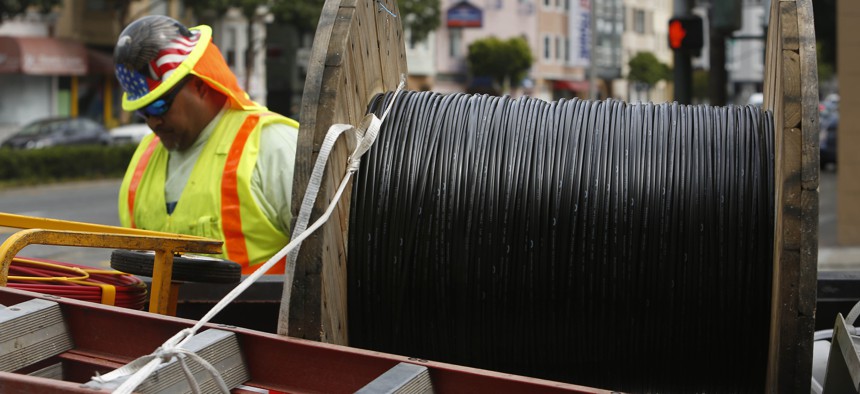Biden administration waives certain ‘Build America’ requirements for broadband
Even with the waiver, though, the administration estimates that roughly 90% of funding for equipment will still be used to purchase U.S.-made products.
The federal government says it’s OK for some components used in building out the nation’s broadband network to come from other countries.
The waiver announced last week by the National Telecommunications and Information Administration, or NTIA, addresses a key concern among states over requirements in the federal Build America, Buy America Act that infrastructure projects have to be built with products made in the U.S.
“I think we all generally support the goals of Build America, Buy America,” said Christine Hallquist, executive director of the Vermont Community Broadband Board, referring to the desire to increase the number of manufacturing jobs in the U.S. But “the real issue,” she said, is that not enough components used in the construction of broadband are currently made in America.
Across the country, states are about to embark on building out broadband as part of the $42.5 billion Broadband Equity, Access, and Deployment, or BEAD, program. “We know that's going to put a huge strain on manufacturing and supply chain capacities,” said Hallquist.
Easing some of the requirements “takes the strongest approach possible to protecting American jobs while also ensuring that we can quickly build the internet networks,” Will Arbuckle, NTIA’s senior policy advisor, wrote in an agency blog post.
The Build America, Buy America Act was expanded under the 2021 infrastructure law to cover electric utilities and transmission, broadband and real estate. Previously, it had mainly applied to road construction, transit and water projects. The expansion raised concerns among state transportation departments and others that the new requirements would slow down infrastructure projects while also raising the cost.
The waiver applies to certain electronics used in broadband, such as semiconductors. But the majority of fiber broadband equipment—including optical fiber, fiber optic cable and enclosures—will still need to be made in America.
“Industry forecasts raise the concern that there will not be sufficient supply of these construction materials, especially for small- to medium-sized ISPs, during peak demand for construction materials during the rollout of the BEAD program,” the agency said in the waiver.
The administration estimates that even with the waiver roughly 90% of funding for equipment will still be used to purchase U.S.-made products. The waiver applies to money given to states between Feb. 22, 2024 through Feb. 22, 2029.
The move was praised by the broadband industry. Michael Romano, executive vice president of NTCA—The Rural Broadband Association, said the waiver is a “positive and productive step forward.”
He added that he is encouraged that NTIA officials have said they will continue to examine whether enough other parts needed to build broadband are being manufactured in the U.S.
Kery Murakami is a senior reporter for Route Fifty, covering Congress and federal policy. He can be reached at kmurakami@govexec.com. Follow @Kery_Murakami
NEXT STORY: Energy to fund 16 infrastructure cybersecurity projects






